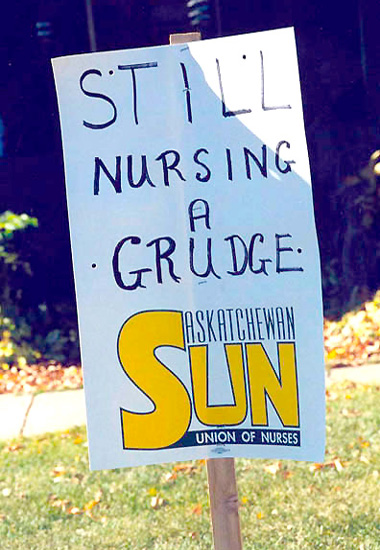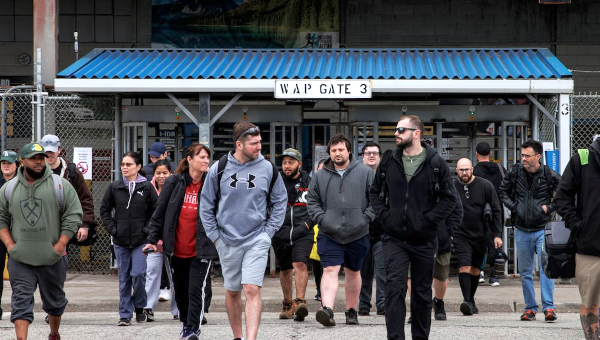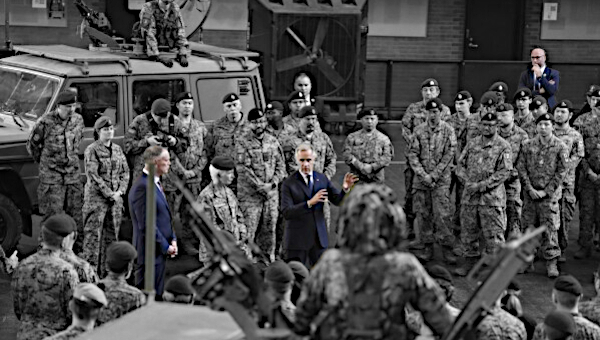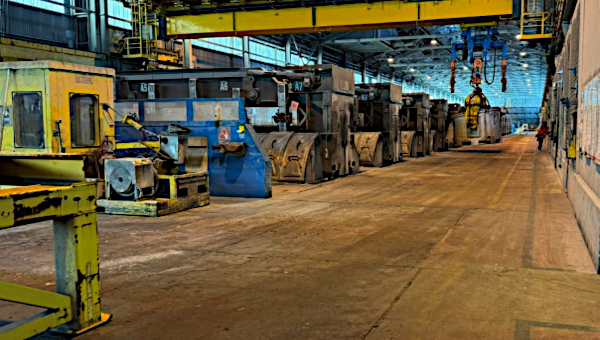Arguably Brad Wall, leader of the Saskatchewan Party, has reached the pinnacle of his career as premier of Saskatchewan. In 2011, he made history with the largest popular vote victory in the province’s history (64%). His approval rating remains at that level, unprecedented for a premier in the mid-point of a second term. He gives the term Teflon Man a whole new meaning – none of the bad news, missteps, or foul-ups of his government sticks to him.

Fickle Export Market
But resource prices are notoriously unstable, and demand can be volatile, as Wall has learned, with recent dips in prices and demand for oil and potash. The American oil market, which Canada assumed to be insatiable, is more competitive, prices have fallen due to market discounts. New recovery techniques and new discoveries suggest the U.S. could be self-sufficient in oil in a couple of decades. As oil prices fall, or spike up and down, the expensive tar sands oil becomes less profitable. Even if oil prices go up, it means export destinations paying hefty prices for oil will become less able to buy Saskatchewan’s other exports, like food and potash.
This situation has led to cautious doldrums in the oil patch, as exploration and expansion projects are cancelled or delayed, and existing markets can’t take all the oil produced as quickly as in the past. Hence, the panicked push for new pipeline construction, regardless of the dangers to the environment, seen as necessary to find a release for the pent-up production potential by opening new markets quickly. But some energy experts insist the proposed pipelines, even if all are approved and built, will not be enough if the American market becomes increasingly competitive, pushing continental prices down.
There is a similar situation in potash. Key customers, like India and China, have negotiated hefty price reductions as prices and demand fell from previous high levels, and a number of expansion projects have been cancelled or delayed. Meanwhile potential new potash producers in other countries are eyeing the good future prospects of potash in the world market. All this means that Saskatchewan may face problems of over capacity and hence over production in a more competitive potash market, pushing prices down and challenging Canada in previously guaranteed markets.
Up to now, Wall has benefitted from boom times in Saskatchewan as resource prices and demand remained high… until the recent problems in potash and oil cut sharply into the resource rents flowing into provincial coffers. Wall has claimed credit for the good news economy, as any incumbent politician would, and this is central to his political success. For now, the recent glitches in oil and potash have not dampened expert projections that the Saskatchewan economy will continue strong in coming years. But that could end if a perfect storm occurs in the oil and potash sectors, which could happen given recent warning clouds. Resource prices can crash over night, as Saskatchewan learned many times in the past. And politicians who happen to be unlucky enough to be in office when the good times end pay the political price… Premiers Anderson in 1934, Thatcher in 1971, Blakeney in 1982, and Devine in 1991.
The question for Brad Wall is – do you want to stay around for the inevitable crash? Or do you want to get out, making a dignified exit with a record of remarkable success?
Unions and Social Forces
Wall’s political problems are beginning to surface as well. His insistence on repeatedly attacking trade unions, expected by his virulently anti-labour right-wing political base, courts future disaster. Saskatchewan has enjoyed labour peace for many years. That peace is being severely tested by Wall’s attacks. At some point, organized labour will get angry enough to unite, organize and go on the offensive. As a social and political force, organized labour has proven to be formidable in the past, contributing to the defeats of Patterson in 1944, Thatcher in 1971, Blakeney in 1982, and Devine in 1991, and to Romanow’s undignified exit from politics after the 1999 nurses’ strike.
Wall is playing with fire. The teachers are angry. The Federation of Labour, and its affiliates, are angry. The nurses could be next. The public is getting worried about piecemeal privatization, and the push back is beginning (for example, the recent quick collection of 24,000 signatures in Regina to block the P3 water treatment plant). If these social forces organize, focus their energy, and systematically go after the Wall government, the premier will be in serious trouble. The signs are there. It is beginning.
Wall’s Political Prospects
But Wall’s political problems are also internal to his party and broader right-wing base. Some elements on the right of his political coalition view Wall as a neoliberal with a bleeding heart. He is not tough enough for the harsh austerity measures necessary to get the economy chugging. He is too slow pushing the privatization file. He is a bit of a big spender on social programs. Wall can easily fend off these internal critics, as long as he is successful and dominates the polls. But at the same time, he has to give them something, and such gestures risk arousing his external enemies. It’s a tough balancing act – giving the far right enough to keep them quiet and on side, but not so much that it arouses his external foes to organize and become aggressive.
There are rumours that Wall is contemplating plunging into federal politics – hence his call for abolition of the Senate and his silly rant about Justin Trudeau’s speaking fees. Other rumours suggest Harper is thinking of stepping down after the next election. Can Wall make the jump into federal politics? Does he have a chance of winning the leadership of the federal Tories?
The record suggests it is risky for premiers to make the leap, especially a bid for a leadership job. Douglas was most successful, stepping down after five election victories, retiring as premier to lead the federal NDP in 1961. But he languished as a third party leader in the House of Commons. Jimmy Gardiner went from Premier to a 22 year career as federal minister of agriculture. His stab at the Liberal leadership was thwarted by St. Laurent in 1948. In 1958 Gardiner lost his seat in the Diefenbaker sweep. Dunning went from Premier to join the Liberal cabinet of King in 1926, and went on a successful career as a Liberal cabinet minister. The record is mixed, not a source of great hope for Wall.
My advice to Wall? Harper won’t quit until he is defeated. When that happens his coalition between the West, rural Canada and suburban Ontario will implode. In the meantime, do you want to be a trained seal and seat warmer for the Harper government? Stay the course in Saskatchewan. A premier has real power. An MP or cabinet minister in the Harper government has none. Besides if you leave, the NDP will surely win, and your political friends, especially the business lobby, would never forgive you. •





